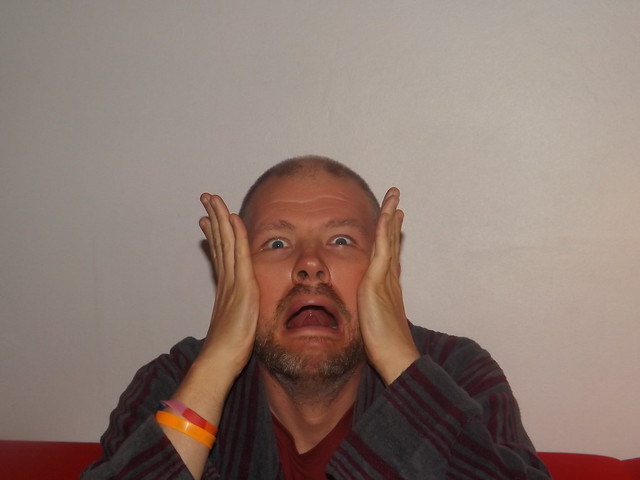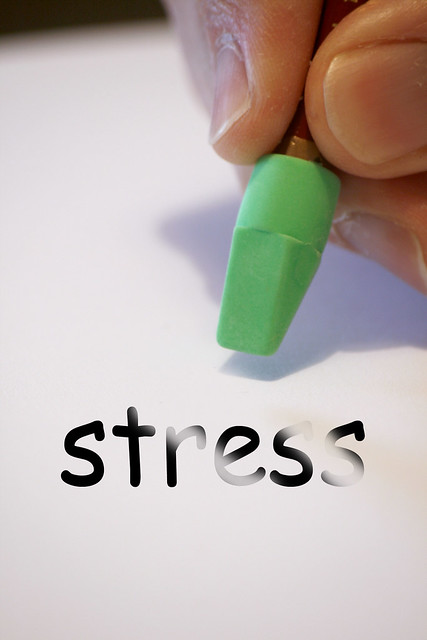 No one can ever be immune to stress, but what differentiates us in these moments is the way we deal with the stress. The basic idea behind dealing with stress stems is your ability to know when you are stressed and what is stressing you (often called the stressor). Being under stress frequently can hamper your health and wellness.
No one can ever be immune to stress, but what differentiates us in these moments is the way we deal with the stress. The basic idea behind dealing with stress stems is your ability to know when you are stressed and what is stressing you (often called the stressor). Being under stress frequently can hamper your health and wellness.
What is Stress?
Simply put, stress is the reaction from our body when demands are made on it. Stress is not only caused by bad experiences in life, but good experiences as well. From a biological point of view, when stressed, the body releases certain chemicals into the blood stream and they provide more energy and strength to the body. This energy can be put to good use if the stress is originating from a physical danger, however they can be harmful if the stressor is of an emotional nature and can cause health problems such as heart disease when the stress is prolonged or occurs often.
Identifying Stress
The initial step in stress management is identifying the cause. More often than not, it is not as easy as it sounds because stressors are not always obvious. There are three types of people in terms of how they relate to their stress.
- Temporary – This individual often assumes that the stress is temporary and is a result of the particular distinct circumstance they are currently in, e.g. having many things to do at the same time.
- Stress as a part of life – This individual associates stress with a certain aspect of their life. For example, they may assume they are only stressed when they are at work.
- Blaming stress on others – This particular individual always finds a way to blame others for the stress they maybe going through at that particular point in time.
Here, you should be able to identify into which category you fall. Until you are able to identify your stress and accept what you are doing, you will never be able to control it.
Step 1 – Avoiding Unnecessary Stress 
Although avoiding stress is not something you can do all the time, we can avoid many stressors in our everyday lives. First and foremost, you need to master your ability to say no. This means you should know your limits in terms of how much responsibility you can take on. Avoid people and conversations that you know will stress you.
Step 2 – Turning the Tables
Although stress can’t always be avoided. If you can’t avoid the situation, try and alter it for the greater good. Analyze the problem and see what you can do so that you are not faced with the same problem yet again. Sometimes you may want someone to change their behavior, but you have to be prepared to make changes to your own behavior in order to make it work. Have confidence when faced with problems, take them by the horn and you will feel more in control – and less stressed. In addition, learn to manage your time better; not being late all the time is an easy way to reduce stress.
Step 3 – Becoming Adaptive
Steps 1 and 2 may not be applicable to all situations so sometimes you need to adapt. If you are not able to change the situation, then be ready to change yourself to fit it. Take a positive mindset about the situation. Accept that you can do nothing to change it and work with it. Also, trying to be perfect is a huge stressor for many people. No one can be perfect all the time. In some situations, it is okay to adjust your standards and make them more realistic in order to reduce stress and complete the task at hand.
Step 4 – Getting Help
If your attempts at controlling your stress have not been as successful as you would like, there are other ways and alternative treatments available. Alternative medicine can provide ways to calm your stress and offer better wellness. Alternative therapy and holistic medicine such as the use of acupuncture, diet, and herbal remedies can be part of an integrative medicine plan created in conjunction with your general internal medicine doctor or general practitioner.
With these steps, stress can be limited to a less frequent event. When dealing with any complementary medicine plan it is important to provide all of your medical information to those who will be treating you. Always check with your regular physician before starting any new medical regimen, natural or otherwise.
Published by Axiom Health Care Marketing




